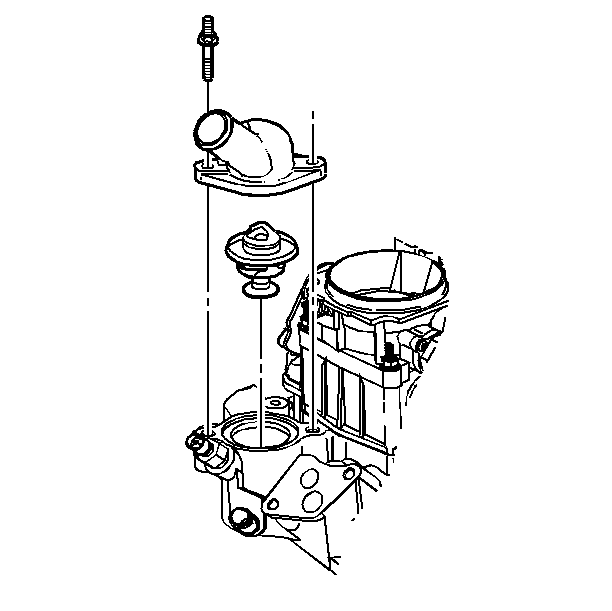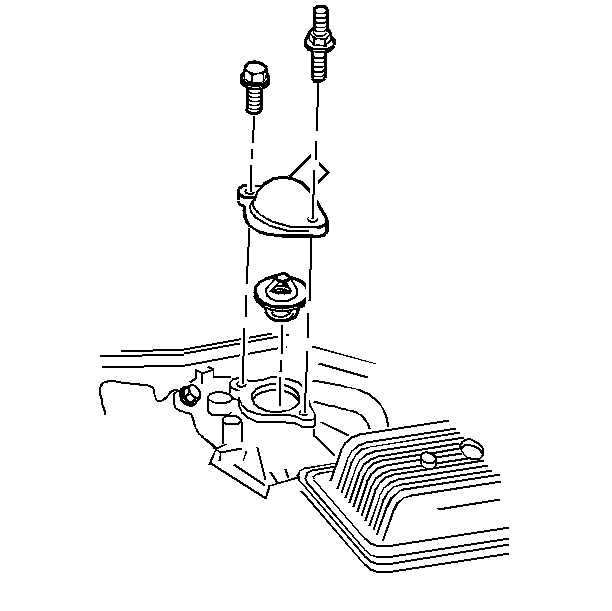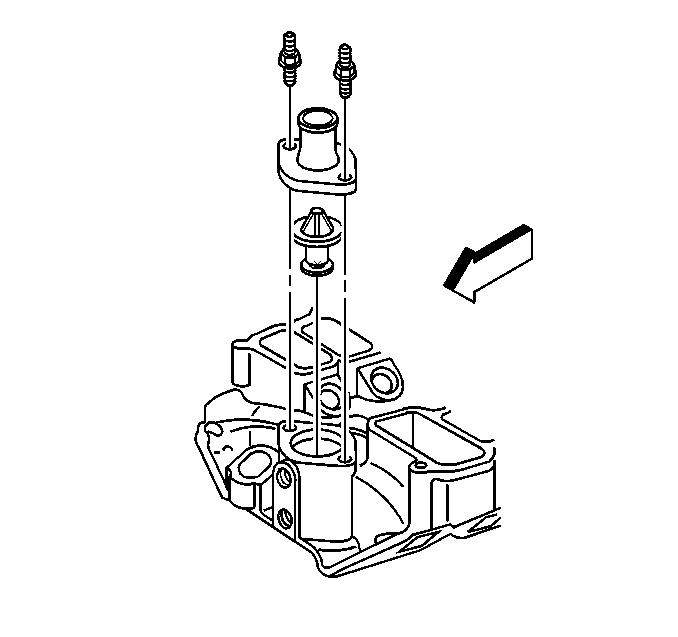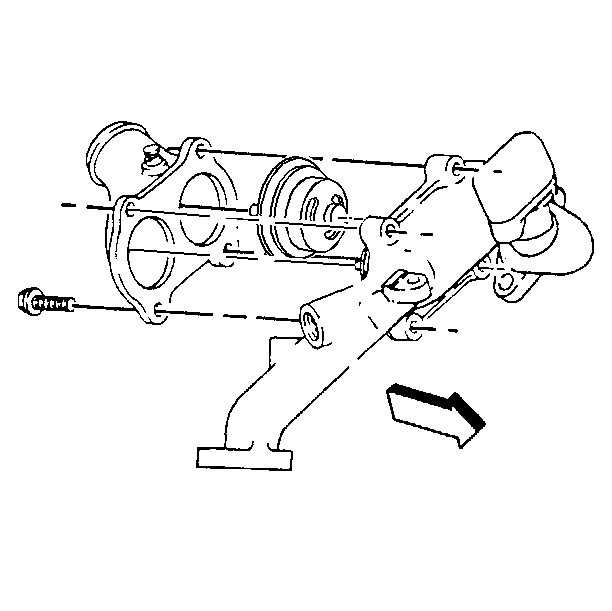Removal Procedure
- Remove the air cleaner and duct assembly. Refer to Engine Controls.
- Remove the coolant recovery reservoir or the surge tank (Diesel).
- Partially drain the coolant. Refer to Cooling System Draining and Filling .
- For the 4.3L, disconnect the radiator hose from the thermostat housing.
- Remove the bolts attaching the thermostat housing to the thermostat.
- Remove the thermostat housing.
- Remove the thermostat.
- Clean the gasket mating surfaces.
- For the 5.0L and the 5.7L, disconnect the radiator hose from the thermostat housing.
- Remove the bolts attaching the thermostat housing to the thermostat.
- Remove the thermostat housing.
- Remove the thermostat.
- Clean the gasket mating surfaces.
- For the 7.4L, disconnect the radiator hose from the thermostat housing.
- Remove the bolts attaching the thermostat housing to the thermostat.
- Remove the thermostat housing.
- Remove the thermostat.
- Clean the gasket mating surfaces.
- For the 6.5L diesel engine, disconnect the radiator hose from the thermostat housing.
- Remove the bolts attaching the thermostat housing to the thermostat.
- Remove the thermostat housing.
- Remove the thermostat.
- Clean the gasket mating surfaces.
Notice: When adding coolant, use DEX-COOL® coolant. If silicated coolant is added to the system, premature engine, heater core or radiator corrosion may result. In addition, the engine coolant will require change sooner-at 50 000 km (30,000 mi) or 24 months.
| • | For the recovery reservoir, refer to Coolant Recovery Reservoir Replacement . |
| • | For the surge tank, refer to Surge Tank (Diesel) . |




Installation Procedure
- For the 4.3L, install the thermostat.
- Install the thermostat housing to the intake manifold.
- Install the bolts to the housing.
- For the 5.0L and 5.7L, install the thermostat.
- Install the thermostat housing to the intake manifold.
- Install the bolts to the housing.
- For the 7.4L, install the thermostat.
- Install the thermostat housing to the intake manifold.
- Install the bolts to the housing.
- For the diesel engines, install the thermostat.
- Install the thermostat housing to the intake manifold.
- Install the bolts to the housing.
- Connect the radiator hose to the thermostat housing.
- Install the coolant recovery reservoir or surge tank.
- Install the air cleaner and the duct. Refer to Engine Controls.
- Refill the coolant. Refer to Cooling System Draining and Filling .
- Inspect the thermostat housing and the gasket for coolant leaks.

Tighten
Tighten the bolts to 25 N·m (18 lb ft).
Notice: Use the correct fastener in the correct location. Replacement fasteners must be the correct part number for that application. Fasteners requiring replacement or fasteners requiring the use of thread locking compound or sealant are identified in the service procedure. Do not use paints, lubricants, or corrosion inhibitors on fasteners or fastener joint surfaces unless specified. These coatings affect fastener torque and joint clamping force and may damage the fastener. Use the correct tightening sequence and specifications when installing fasteners in order to avoid damage to parts and systems.

Tighten
Tighten the bolts to 25 N·m (18 lb ft).

Tighten
Tighten the bolts to 40 N·m (30 lb ft).

Tighten
Tighten the bolts to 42 N·m (31 lb ft).
| • | For the recovery reservoir, refer to Coolant Recovery Reservoir Replacement . |
| • | For the surge tank, refer to Surge Tank (Diesel) . |
Important: In order to properly fill a system that has been completely drained, use the air bleed vents, located on the thermostat housing.
